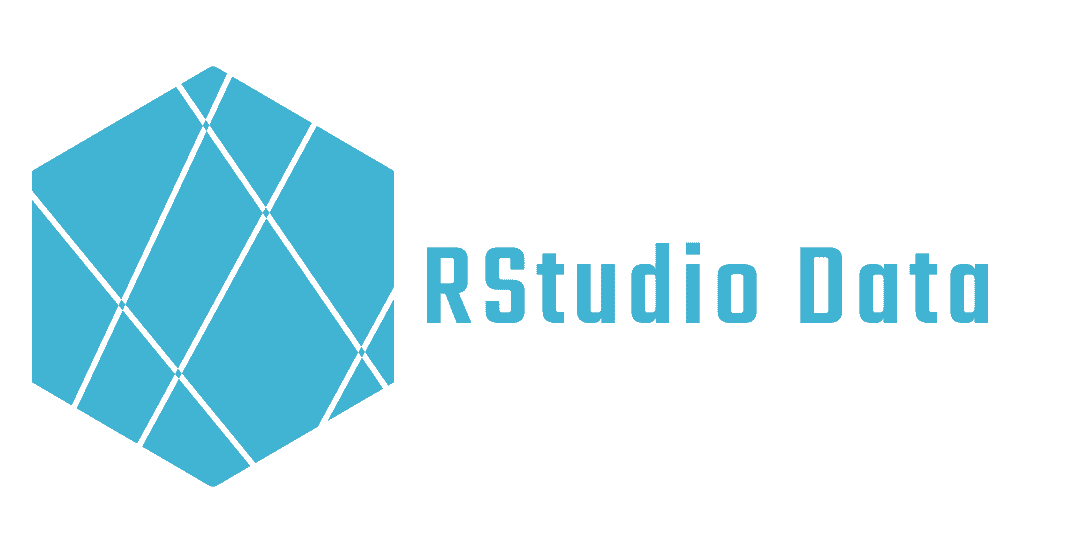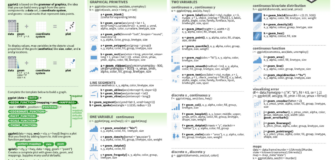Top 10 Best RStudio packages for data wrangling

The programming language R is particularly popular in the field of data analysis due to its power and flexibility. There are many packages available for manipulating data in R, each with its own features and advantages. In this article, we present the top 10 best packages for data manipulation in R. These packages have been chosen based on their popularity, ease of use, and effectiveness in performing various data manipulation tasks such as cleaning, reshaping, selecting and modifying columns, and manipulating strings and time data.
Best RStudio wrangling and processing package :
dplyr
Well known to all, the RStudio dplyr package is a syntax simplifying data manipulation. The most well known functions and synthesizers are
- %>%, pipe allows to link several operations and to simplify the writing.
- mutate(), allows you to create new columns in the data table, for example by starting from existing data and performing mathematical operations, or by converting timestamp data into readable data.
- group_by(), allows you to define groups of rows based on common values of one or more columns. For example, you can group values with similar years, months or days in order to analyze them together.
- select(), allows you to display a subset of the data by selecting a certain number of columns. It is also possible to work the other way around by removing certain columns by preceding their name with the minus sign “-“.
- filter(), allows to select/filter data according to one or more conditions. We can use mathematical signs for example: “==”, “>” “<” “>=”
- summarise(), is used to summarize data from a table or data frame into a single line. It can be used to calculate simple statistics, such as average, sum, minimum, maximum, etc., on one or more groups of data.
- arrange(), allows you to reorder one or more rows of an array in an increasing or decreasing way desc() for example.
Tidyverse
The Tidyverse package for RStudio is a grouping of several RStudio packages and extensions that cover data manipulation, visualization, data import/export, programming and web data extraction (scrapping)
Tidyr
The Tidyr package for RStudio provides users with functions to arrange data and convert it into a so-called “tidy” format. Similar to dplyr, it can be easily integrated into the pipe series. There are for example the functions pivot_xx (longer/wider), separate() to split a column into several, separate_rows() to perform the same operation on rows, or unite() to merge columns.
Stringr
The stringr package for R is a library of functions that make it easy to process strings in R. It provides a set of tools that make it easy to manipulate and process strings, such as :
- str_trim(): allows you to remove spaces at the beginning and end of a string
- str_pad(): allows you to add characters to a string, to make it longer or shorter
- str_replace(): allows to replace a substring by another one
- str_split(): splits a string into several substrings
- str_detect(): checks if a string contains a given substring
The stringr package is particularly useful for cleaning and preparing textual data before parsing or visualizing it.
Lubridate
The lubridate package for R is a library of functions that makes it easy to process dates and durations in R. It provides a set of tools that make it easy to manipulate and process dates and durations, such as :
- ymd(): allows you to create a date from three separate values for year, month and day
- hms(): creates a duration from three separate values for hours, minutes and seconds
- interval(): allows you to create a duration from two dates
- days(): allows you to calculate the number of days between two dates
- hours(): calculates the number of hours between two durations
The lubridate package is particularly useful for working with time data in R, and for performing common operations like calculating durations or comparing dates.
The RStudio packages read :
Readr & Readxl
The readr and readxl packages are libraries of functions for R that facilitate reading data from external files.
The readr package is primarily designed to read tabular data stored in CSV (Comma Separated Values) format. It provides a series of functions for reading data from CSV files, including read_csv() which reads the whole file at once, and read_csv2() which is specific to the CSV format used in Europe, where commas are used as decimal separators and semicolons as column separators.
The readxl package is designed to read data from Excel spreadsheets. It provides a series of functions for reading data from Excel files, including read_excel() which reads the entire spreadsheet at once, and read_xlsx() which is specific to the .xlsx file format used by Excel 2007 and later.
The readr and readxl packages are particularly useful for importing data from external files into R quickly and easily. They also allow you to specify how the data should be read and interpreted, for example by specifying the type of each column (string, integer, etc.) or how missing values should be handled.
Jsonlite
Similar to the two previous packages, the jsonlite package for R is a library of functions that allows you to read and write data in JSON (JavaScript Object Notation) format. JSON is a commonly used data format for exchanging data on the internet, because it is easy for humans to read and write, and easy for computers to parse and generate.
The jsonlite package provides a series of functions for working with JSON formatted data in R, including:
fromJSON(): allows you to read JSON data from a string or file, and convert it into an R object (such as a list or data frame)
toJSON(): allows to convert an R object into a string in JSON format
The jsonlite package is particularly useful for working with APIs (Application Programming Interface) that return or accept data in JSON format. It allows you to easily read and write these data in R, and to use them in analyses or visualizations.
Purrr
The purrr package for R is a function library that extends the capabilities of the map() function in the R language.
map() is a very useful function that allows you to apply a function to each element of a list or vector, and return a new object (like a list or vector) with the results.
For example, if you have a list of numbers and you want to multiply them by 2, you can use map() like this:
x <- list(1, 2, 3, 4) map(x, function(n) n * 2) [1] 2 4 6 8
The purrr package extends this functionality by providing a series of tools for working with lists and vectors in a more expressive and concise way. For example, you can use map_dbl() to apply a function to each element of a list and return a vector of floating-point numbers, or use map_chr() to return a vector of strings.
The purrr package also provides a number of other useful functions for working with lists and vectors, such as reduce() which allows you to combine all the elements of a list into a single value, or keep() which allows you to filter a list by keeping only certain elements.

